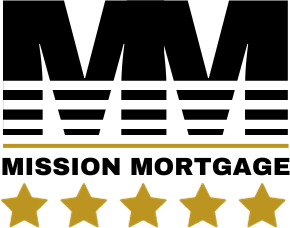Buying vs. Renting: A Comparison for Prospective Homeowners
One of the most significant decisions in anyone's life is choosing between buying a home or continuing to rent. This decision involves not just lifestyle preferences but also very important financial considerations.
The Costs of Buying a Home
Purchasing a home involves several upfront and ongoing costs. The most notable is the down payment, typically ranging from 3% to 20% of the home's purchase price, depending on the mortgage type. Then there are additional costs including closing fees, property taxes, homeowners insurance, and maintenance expenses.
For example, we’ll use a home valued at $300,000. With a 20% down payment, you'll need $60,000 upfront. Assuming a 30-year fixed mortgage at 4% interest, your monthly mortgage payment would be approximately $1,145 (not including taxes and insurance). Over the life of the loan (30 years) the total cost would be around $412,200 in mortgage payments.
The Costs of Renting
Renting generally involves fewer upfront costs, mainly just a security deposit (can range from 1—3 months rent usually) and the first month's rent. However, rent prices can increase over time, and the money spent on rent doesn't contribute to equity or investment.
To compare it with the cost of owning a home, if you're paying $1,200/month in rent, the annual cost is $14,400. Over 30 years, without accounting for rent increases, you'd spend $432,000 on rent plus zero equity added to your net worth.
Wealth Build-Up Through Homeownership
One of the most compelling arguments for buying a home is the potential for wealth accumulation and adding to your net worth. As you pay down your mortgage, you build equity in your home. Additionally, real estate typically appreciates over time, further increasing the value of your investment.
Continuing with the $300,000 home purchase, if the home appreciates at an average rate of 3% per year, it would be worth approximately $728,000 after 30 years. Subtracting the total mortgage payments, there’s a potential net gain of $315,800, not accounting for maintenance costs and property taxes.
You can also access this equity at any time by simply refinancing.
Tax Deductions
Homeowners can benefit from tax deductions, such as mortgage interest and property taxes, which are not available to renters. These deductions can significantly reduce the effective cost of homeownership as they often end up being a large expense to offset your taxable income.
Lifestyle Factors to Consider
Beyond financial aspects, consider your lifestyle needs. Homeownership offers stability, customization, and a sense of community as you’re typically there for many years. Meeting new friends and families who are also likely there for the long term is a great experience.
On the flip side, renting provides more flexibility, less responsibility for maintenance, and potential mobility advantages (for example, if you get offered a new job that requires you to move).
The decision to buy or rent depends on individual financial situations, long-term goals, and lifestyle preferences. While homeownership can offer a path to wealth accumulation and stability, renting might be more suitable for those seeking flexibility and minimal responsibility.

Lets get Started
By pressing “Submit,” you consent to receive text messages from Mission Mortgage Co, LLC. Messaging frequency varies. Message and data rates may apply. Expect important notifications about our services, updates on upcoming meetings, and replies from your dedicated representative. You can opt out at any time by replying "STOP" or send "HELP" for more info to any message. For more information, please read our Terms of Service and Privacy Policy.


